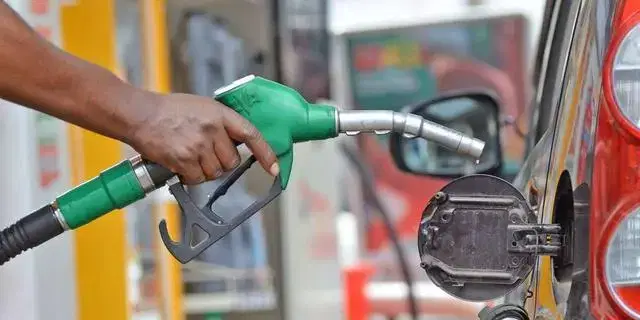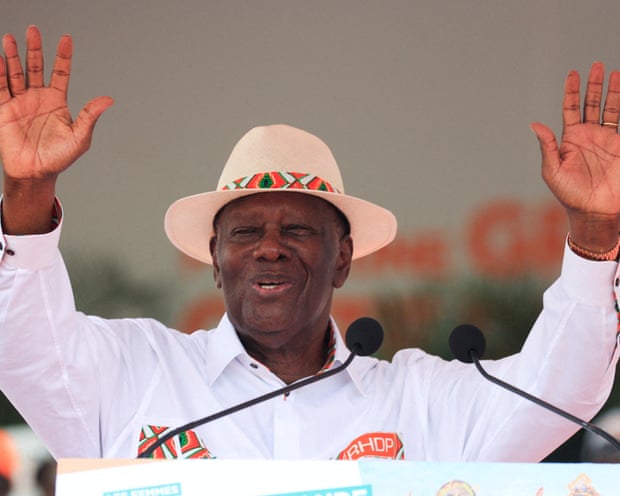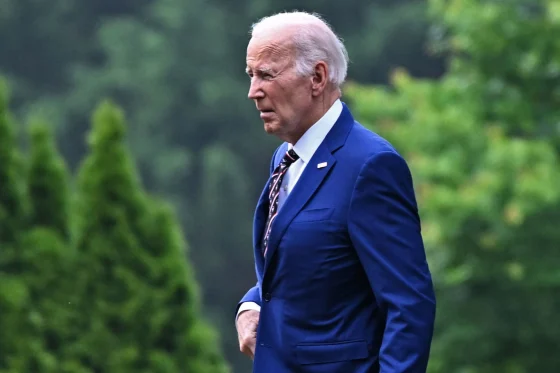 Abuja-based policy and governance expert, Rotimi Matthew, has claimed that a new cabal in the petroleum industry is proposing a 15% tariff on imported petrol, which will only strengthen monopoly, reduce competition and give price control to a single business. He argues that the alleged proposed tariff would effectively inflate pump prices and grant monopoly control to a few that currently lack the capacity to meet national consumption. The expert urges the government to resist pressure from cronies and vested interests seeking personal gain under the guise of local empowerment. Read the full report written by Rotimi Mathew belowDuring a recent meeting at the seat of power, key government officials and energy leaders were locked in a consequential conversation. This gathering brought together a select group of influential government representatives and business figures close to the seat of power, including several associates operating in the shadows of a private petroleum refining bigwig.For these cronies of Africas richest, their aim was simple: to manipulate policy in order to secure a monopoly over the downstream oil market. The pitch sounded patriotic enough: impose a 15% tariff on imported petrol to strengthen local refining, boost the naira, and make Nigeria self-sufficient. But behind the presentation lies a familiar story. Obviously, these were not reformers. Although they got a listening ear, there were no commitments. They came to hoodwink and mislead, one senior aide said. They said tariff would bring in money for the government, which makes it important for some officials. In reality, it will only enrich monopoly and punish Nigerians. The proposed tariff, if signed, would automatically raise the pump price of petrol by about 150 to 175 per litre, pushing fuel costs far beyond what many households can afford. Nigerias average daily consumption is around 50 million litres, but local refining capacity currently supplies only about 22 million litres. The rest still comes from imports. This means the tariff will not reduce import dependence; it will simply make imported petrol unaffordable and force all marketers to buy from a single source on its terms and timetable. For a government that has promised reform, this means regression. When Tariffs Become Tools of ControlTariffs are not inherently bad. They can protect emerging industries from being swallowed by foreign competitors. But in this case, the infant industry is anything but helpless. The new refinery, valued at over $20 billion, is backed by decades of state incentives, preferential access to crude, and heavy political patronage. It does not need protection; it already has privilege. The levy would increase landing costs for imported petrol by 150175 per litre, automatically shifting the comparative advantage, regardless of its cost efficiency. Given the local supply of roughly 22 million litres of the estimated 50 million litres consumed daily, the tariff would force marketers to source primarily from a monopoly, sometimes unwillingly. At the said meeting, these men with ties to the local refining sub-sector and the industrial class, presented what they called a roadmap: the tariff would seal the market in favour of local refining, and within months, price stability would follow. The presentation was a performance of persuasion rather than a policy debate.Economists and policy insiders who have reviewed the draft proposal warn that it could reignite inflation and cripple smaller players in logistics, retail, and manufacturing. This is not a protective tariff; it is a political instrument, said one senior energy analyst. It will make monopoly drive up every cost that depends on petrol, from food transport to electricity. Yes, some in government are cautious. The narrative floating is that the president, given his people-centred reforms over the past year, is not yet ready to saddle the public with yet another levy. In private halls, officials express dismay at what they call overreach disguised as reform. This tension is no minor leak; it signifies a policy crossroads. Will the state serve Nigerians or prioritise private interests? Any mistake in understanding this issue and making the right decision leaves the door wide open for the opposition to stroll through. When Policy Becomes Private StrategyFor months, the monopoly advocates have framed the conversation as a patriotic duty to support local production. But their argument omits key details. First, the landing cost already surpasses imports: 929.72 per litre at the terminal compared to 802.44 for imported fuel. This means the local advantage does not exist. The tariff would not protect cheaper domestic output; it would simply punish cheaper alternatives. Second, capacity constraints mean Nigeria cannot rely solely on local refiners yet. Even with full operations, distribution bottlenecks and limitations on product variety remain unresolved. To pretend that it can replace an entire import framework overnight is a dangerous illusion. Third, such a policy hands a single company extraordinary leverage over national pricing. If importers disappear, there will be no benchmark, no competition, and no deterrent against price manipulation. Every adjustment at the refinery gate will echo through the economy like a tax. The Presidents reform agenda was built on sacrifice for long-term stability. Subsidy removal, foreign exchange unification, and fiscal tightening were all justified as painful but necessary steps. To now impose a new tariff that reverses those gains would betray both logic and the publics patience. Why Nigeria Must Demand Competition, Not CaptureWhy must the state resist this tariff? Because energy is not a discretionary good. Sacrifice is not optional. This is not academic. At its core, this is a choice between power and people. Should the pain of ordinary Nigerians be deepened to guarantee the dominance of a few? Should public policy be written in the language of protection but delivered as private enrichment? If implemented, the 15% tariff would not only raise fuel costs but trigger a chain reaction; transport fares, food prices, manufacturing costs, and inflationary pressures would surge again. Every corner of the economy and homes connected to it will feel it. The President is at a crossroads. He can side with those who whisper profit in the name of protection, or with the millions who believed his promise of people-centred governance. He can sign a tariff that rewards manipulation, or pause, review, and protect the public interest. History will remember which path he takes. For now, Nigerians can only hope that reason prevails. Rotimi Matthew, a public policy analyst, wrote in from Abuja.The post Governance expert, Rotimi Matthew, alleges that a new cabal in the petroleum industry is proposing a 15% tariff on imported petrol appeared first on Linda Ikeji Blog.
Abuja-based policy and governance expert, Rotimi Matthew, has claimed that a new cabal in the petroleum industry is proposing a 15% tariff on imported petrol, which will only strengthen monopoly, reduce competition and give price control to a single business. He argues that the alleged proposed tariff would effectively inflate pump prices and grant monopoly control to a few that currently lack the capacity to meet national consumption. The expert urges the government to resist pressure from cronies and vested interests seeking personal gain under the guise of local empowerment. Read the full report written by Rotimi Mathew belowDuring a recent meeting at the seat of power, key government officials and energy leaders were locked in a consequential conversation. This gathering brought together a select group of influential government representatives and business figures close to the seat of power, including several associates operating in the shadows of a private petroleum refining bigwig.For these cronies of Africas richest, their aim was simple: to manipulate policy in order to secure a monopoly over the downstream oil market. The pitch sounded patriotic enough: impose a 15% tariff on imported petrol to strengthen local refining, boost the naira, and make Nigeria self-sufficient. But behind the presentation lies a familiar story. Obviously, these were not reformers. Although they got a listening ear, there were no commitments. They came to hoodwink and mislead, one senior aide said. They said tariff would bring in money for the government, which makes it important for some officials. In reality, it will only enrich monopoly and punish Nigerians. The proposed tariff, if signed, would automatically raise the pump price of petrol by about 150 to 175 per litre, pushing fuel costs far beyond what many households can afford. Nigerias average daily consumption is around 50 million litres, but local refining capacity currently supplies only about 22 million litres. The rest still comes from imports. This means the tariff will not reduce import dependence; it will simply make imported petrol unaffordable and force all marketers to buy from a single source on its terms and timetable. For a government that has promised reform, this means regression. When Tariffs Become Tools of ControlTariffs are not inherently bad. They can protect emerging industries from being swallowed by foreign competitors. But in this case, the infant industry is anything but helpless. The new refinery, valued at over $20 billion, is backed by decades of state incentives, preferential access to crude, and heavy political patronage. It does not need protection; it already has privilege. The levy would increase landing costs for imported petrol by 150175 per litre, automatically shifting the comparative advantage, regardless of its cost efficiency. Given the local supply of roughly 22 million litres of the estimated 50 million litres consumed daily, the tariff would force marketers to source primarily from a monopoly, sometimes unwillingly. At the said meeting, these men with ties to the local refining sub-sector and the industrial class, presented what they called a roadmap: the tariff would seal the market in favour of local refining, and within months, price stability would follow. The presentation was a performance of persuasion rather than a policy debate.Economists and policy insiders who have reviewed the draft proposal warn that it could reignite inflation and cripple smaller players in logistics, retail, and manufacturing. This is not a protective tariff; it is a political instrument, said one senior energy analyst. It will make monopoly drive up every cost that depends on petrol, from food transport to electricity. Yes, some in government are cautious. The narrative floating is that the president, given his people-centred reforms over the past year, is not yet ready to saddle the public with yet another levy. In private halls, officials express dismay at what they call overreach disguised as reform. This tension is no minor leak; it signifies a policy crossroads. Will the state serve Nigerians or prioritise private interests? Any mistake in understanding this issue and making the right decision leaves the door wide open for the opposition to stroll through. When Policy Becomes Private StrategyFor months, the monopoly advocates have framed the conversation as a patriotic duty to support local production. But their argument omits key details. First, the landing cost already surpasses imports: 929.72 per litre at the terminal compared to 802.44 for imported fuel. This means the local advantage does not exist. The tariff would not protect cheaper domestic output; it would simply punish cheaper alternatives. Second, capacity constraints mean Nigeria cannot rely solely on local refiners yet. Even with full operations, distribution bottlenecks and limitations on product variety remain unresolved. To pretend that it can replace an entire import framework overnight is a dangerous illusion. Third, such a policy hands a single company extraordinary leverage over national pricing. If importers disappear, there will be no benchmark, no competition, and no deterrent against price manipulation. Every adjustment at the refinery gate will echo through the economy like a tax. The Presidents reform agenda was built on sacrifice for long-term stability. Subsidy removal, foreign exchange unification, and fiscal tightening were all justified as painful but necessary steps. To now impose a new tariff that reverses those gains would betray both logic and the publics patience. Why Nigeria Must Demand Competition, Not CaptureWhy must the state resist this tariff? Because energy is not a discretionary good. Sacrifice is not optional. This is not academic. At its core, this is a choice between power and people. Should the pain of ordinary Nigerians be deepened to guarantee the dominance of a few? Should public policy be written in the language of protection but delivered as private enrichment? If implemented, the 15% tariff would not only raise fuel costs but trigger a chain reaction; transport fares, food prices, manufacturing costs, and inflationary pressures would surge again. Every corner of the economy and homes connected to it will feel it. The President is at a crossroads. He can side with those who whisper profit in the name of protection, or with the millions who believed his promise of people-centred governance. He can sign a tariff that rewards manipulation, or pause, review, and protect the public interest. History will remember which path he takes. For now, Nigerians can only hope that reason prevails. Rotimi Matthew, a public policy analyst, wrote in from Abuja.The post Governance expert, Rotimi Matthew, alleges that a new cabal in the petroleum industry is proposing a 15% tariff on imported petrol appeared first on Linda Ikeji Blog. Governance expert, Rotimi Matthew, alleges that a new cabal in the petroleum industry is proposing a 15% tariff on imported petrol
 Abuja-based policy and governance expert, Rotimi Matthew, has claimed that a new cabal in the petroleum industry is proposing a 15% tariff on imported petrol, which will only strengthen monopoly, reduce competition and give price control to a single business. He argues that the alleged proposed tariff would effectively inflate pump prices and grant monopoly control to a few that currently lack the capacity to meet national consumption. The expert urges the government to resist pressure from cronies and vested interests seeking personal gain under the guise of local empowerment. Read the full report written by Rotimi Mathew belowDuring a recent meeting at the seat of power, key government officials and energy leaders were locked in a consequential conversation. This gathering brought together a select group of influential government representatives and business figures close to the seat of power, including several associates operating in the shadows of a private petroleum refining bigwig.For these cronies of Africas richest, their aim was simple: to manipulate policy in order to secure a monopoly over the downstream oil market. The pitch sounded patriotic enough: impose a 15% tariff on imported petrol to strengthen local refining, boost the naira, and make Nigeria self-sufficient. But behind the presentation lies a familiar story. Obviously, these were not reformers. Although they got a listening ear, there were no commitments. They came to hoodwink and mislead, one senior aide said. They said tariff would bring in money for the government, which makes it important for some officials. In reality, it will only enrich monopoly and punish Nigerians. The proposed tariff, if signed, would automatically raise the pump price of petrol by about 150 to 175 per litre, pushing fuel costs far beyond what many households can afford. Nigerias average daily consumption is around 50 million litres, but local refining capacity currently supplies only about 22 million litres. The rest still comes from imports. This means the tariff will not reduce import dependence; it will simply make imported petrol unaffordable and force all marketers to buy from a single source on its terms and timetable. For a government that has promised reform, this means regression. When Tariffs Become Tools of ControlTariffs are not inherently bad. They can protect emerging industries from being swallowed by foreign competitors. But in this case, the infant industry is anything but helpless. The new refinery, valued at over $20 billion, is backed by decades of state incentives, preferential access to crude, and heavy political patronage. It does not need protection; it already has privilege. The levy would increase landing costs for imported petrol by 150175 per litre, automatically shifting the comparative advantage, regardless of its cost efficiency. Given the local supply of roughly 22 million litres of the estimated 50 million litres consumed daily, the tariff would force marketers to source primarily from a monopoly, sometimes unwillingly. At the said meeting, these men with ties to the local refining sub-sector and the industrial class, presented what they called a roadmap: the tariff would seal the market in favour of local refining, and within months, price stability would follow. The presentation was a performance of persuasion rather than a policy debate.Economists and policy insiders who have reviewed the draft proposal warn that it could reignite inflation and cripple smaller players in logistics, retail, and manufacturing. This is not a protective tariff; it is a political instrument, said one senior energy analyst. It will make monopoly drive up every cost that depends on petrol, from food transport to electricity. Yes, some in government are cautious. The narrative floating is that the president, given his people-centred reforms over the past year, is not yet ready to saddle the public with yet another levy. In private halls, officials express dismay at what they call overreach disguised as reform. This tension is no minor leak; it signifies a policy crossroads. Will the state serve Nigerians or prioritise private interests? Any mistake in understanding this issue and making the right decision leaves the door wide open for the opposition to stroll through. When Policy Becomes Private StrategyFor months, the monopoly advocates have framed the conversation as a patriotic duty to support local production. But their argument omits key details. First, the landing cost already surpasses imports: 929.72 per litre at the terminal compared to 802.44 for imported fuel. This means the local advantage does not exist. The tariff would not protect cheaper domestic output; it would simply punish cheaper alternatives. Second, capacity constraints mean Nigeria cannot rely solely on local refiners yet. Even with full operations, distribution bottlenecks and limitations on product variety remain unresolved. To pretend that it can replace an entire import framework overnight is a dangerous illusion. Third, such a policy hands a single company extraordinary leverage over national pricing. If importers disappear, there will be no benchmark, no competition, and no deterrent against price manipulation. Every adjustment at the refinery gate will echo through the economy like a tax. The Presidents reform agenda was built on sacrifice for long-term stability. Subsidy removal, foreign exchange unification, and fiscal tightening were all justified as painful but necessary steps. To now impose a new tariff that reverses those gains would betray both logic and the publics patience. Why Nigeria Must Demand Competition, Not CaptureWhy must the state resist this tariff? Because energy is not a discretionary good. Sacrifice is not optional. This is not academic. At its core, this is a choice between power and people. Should the pain of ordinary Nigerians be deepened to guarantee the dominance of a few? Should public policy be written in the language of protection but delivered as private enrichment? If implemented, the 15% tariff would not only raise fuel costs but trigger a chain reaction; transport fares, food prices, manufacturing costs, and inflationary pressures would surge again. Every corner of the economy and homes connected to it will feel it. The President is at a crossroads. He can side with those who whisper profit in the name of protection, or with the millions who believed his promise of people-centred governance. He can sign a tariff that rewards manipulation, or pause, review, and protect the public interest. History will remember which path he takes. For now, Nigerians can only hope that reason prevails. Rotimi Matthew, a public policy analyst, wrote in from Abuja.The post Governance expert, Rotimi Matthew, alleges that a new cabal in the petroleum industry is proposing a 15% tariff on imported petrol appeared first on Linda Ikeji Blog.
Abuja-based policy and governance expert, Rotimi Matthew, has claimed that a new cabal in the petroleum industry is proposing a 15% tariff on imported petrol, which will only strengthen monopoly, reduce competition and give price control to a single business. He argues that the alleged proposed tariff would effectively inflate pump prices and grant monopoly control to a few that currently lack the capacity to meet national consumption. The expert urges the government to resist pressure from cronies and vested interests seeking personal gain under the guise of local empowerment. Read the full report written by Rotimi Mathew belowDuring a recent meeting at the seat of power, key government officials and energy leaders were locked in a consequential conversation. This gathering brought together a select group of influential government representatives and business figures close to the seat of power, including several associates operating in the shadows of a private petroleum refining bigwig.For these cronies of Africas richest, their aim was simple: to manipulate policy in order to secure a monopoly over the downstream oil market. The pitch sounded patriotic enough: impose a 15% tariff on imported petrol to strengthen local refining, boost the naira, and make Nigeria self-sufficient. But behind the presentation lies a familiar story. Obviously, these were not reformers. Although they got a listening ear, there were no commitments. They came to hoodwink and mislead, one senior aide said. They said tariff would bring in money for the government, which makes it important for some officials. In reality, it will only enrich monopoly and punish Nigerians. The proposed tariff, if signed, would automatically raise the pump price of petrol by about 150 to 175 per litre, pushing fuel costs far beyond what many households can afford. Nigerias average daily consumption is around 50 million litres, but local refining capacity currently supplies only about 22 million litres. The rest still comes from imports. This means the tariff will not reduce import dependence; it will simply make imported petrol unaffordable and force all marketers to buy from a single source on its terms and timetable. For a government that has promised reform, this means regression. When Tariffs Become Tools of ControlTariffs are not inherently bad. They can protect emerging industries from being swallowed by foreign competitors. But in this case, the infant industry is anything but helpless. The new refinery, valued at over $20 billion, is backed by decades of state incentives, preferential access to crude, and heavy political patronage. It does not need protection; it already has privilege. The levy would increase landing costs for imported petrol by 150175 per litre, automatically shifting the comparative advantage, regardless of its cost efficiency. Given the local supply of roughly 22 million litres of the estimated 50 million litres consumed daily, the tariff would force marketers to source primarily from a monopoly, sometimes unwillingly. At the said meeting, these men with ties to the local refining sub-sector and the industrial class, presented what they called a roadmap: the tariff would seal the market in favour of local refining, and within months, price stability would follow. The presentation was a performance of persuasion rather than a policy debate.Economists and policy insiders who have reviewed the draft proposal warn that it could reignite inflation and cripple smaller players in logistics, retail, and manufacturing. This is not a protective tariff; it is a political instrument, said one senior energy analyst. It will make monopoly drive up every cost that depends on petrol, from food transport to electricity. Yes, some in government are cautious. The narrative floating is that the president, given his people-centred reforms over the past year, is not yet ready to saddle the public with yet another levy. In private halls, officials express dismay at what they call overreach disguised as reform. This tension is no minor leak; it signifies a policy crossroads. Will the state serve Nigerians or prioritise private interests? Any mistake in understanding this issue and making the right decision leaves the door wide open for the opposition to stroll through. When Policy Becomes Private StrategyFor months, the monopoly advocates have framed the conversation as a patriotic duty to support local production. But their argument omits key details. First, the landing cost already surpasses imports: 929.72 per litre at the terminal compared to 802.44 for imported fuel. This means the local advantage does not exist. The tariff would not protect cheaper domestic output; it would simply punish cheaper alternatives. Second, capacity constraints mean Nigeria cannot rely solely on local refiners yet. Even with full operations, distribution bottlenecks and limitations on product variety remain unresolved. To pretend that it can replace an entire import framework overnight is a dangerous illusion. Third, such a policy hands a single company extraordinary leverage over national pricing. If importers disappear, there will be no benchmark, no competition, and no deterrent against price manipulation. Every adjustment at the refinery gate will echo through the economy like a tax. The Presidents reform agenda was built on sacrifice for long-term stability. Subsidy removal, foreign exchange unification, and fiscal tightening were all justified as painful but necessary steps. To now impose a new tariff that reverses those gains would betray both logic and the publics patience. Why Nigeria Must Demand Competition, Not CaptureWhy must the state resist this tariff? Because energy is not a discretionary good. Sacrifice is not optional. This is not academic. At its core, this is a choice between power and people. Should the pain of ordinary Nigerians be deepened to guarantee the dominance of a few? Should public policy be written in the language of protection but delivered as private enrichment? If implemented, the 15% tariff would not only raise fuel costs but trigger a chain reaction; transport fares, food prices, manufacturing costs, and inflationary pressures would surge again. Every corner of the economy and homes connected to it will feel it. The President is at a crossroads. He can side with those who whisper profit in the name of protection, or with the millions who believed his promise of people-centred governance. He can sign a tariff that rewards manipulation, or pause, review, and protect the public interest. History will remember which path he takes. For now, Nigerians can only hope that reason prevails. Rotimi Matthew, a public policy analyst, wrote in from Abuja.The post Governance expert, Rotimi Matthew, alleges that a new cabal in the petroleum industry is proposing a 15% tariff on imported petrol appeared first on Linda Ikeji Blog. 
.png) 5 hours ago
1
5 hours ago
1







